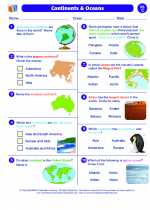Continents and Oceans -> europe
Europe
Introduction
Europe is a continent located entirely in the Northern Hemisphere and mostly in the Eastern Hemisphere. It is bordered by the Arctic Ocean to the north, the Atlantic Ocean to the west, and the Mediterranean Sea to the south. Europe is the second smallest continent by surface area and the third most populous after Asia and Africa.
Geography
Europe is known for its diverse geography, including mountain ranges such as the Alps and the Carpathians, as well as plains and river systems like the Danube and Rhine. The continent is also home to many important water bodies, including the Mediterranean Sea, the Baltic Sea, and the North Sea.
Countries
Europe is made up of 44 countries, including Russia, which spans both Europe and Asia. Some of the most well-known European countries include France, Germany, Italy, Spain, and the United Kingdom.
History
Europe has a rich and complex history, with periods of great cultural, political, and economic achievement, as well as times of conflict and division. Important events in European history include the Roman Empire, the Renaissance, the Age of Exploration, and both World Wars.
Culture
European culture is incredibly diverse, with each country having its own unique traditions, languages, and customs. The continent has made significant contributions to art, music, literature, philosophy, and science throughout history.
Study Guide
Here are some key study questions to help you understand the topic of Europe:
- What are the major geographical features of Europe?
- How many countries are there in Europe, and can you name some of them?
- What are some important historical events that have shaped Europe?
- How does European culture vary from country to country?
- What contributions has Europe made to the world in terms of art, music, literature, and science?
◂Social Studies Worksheets and Study Guides Third Grade. Continents and Oceans
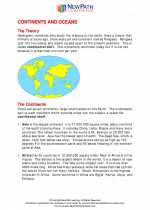
 Worksheet/Answer key
Worksheet/Answer key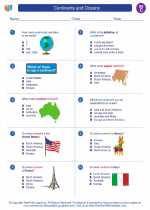
 Worksheet/Answer key
Worksheet/Answer key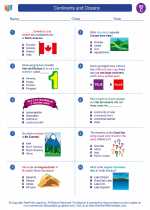
 Worksheet/Answer key
Worksheet/Answer key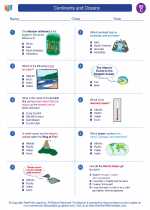
 Worksheet/Answer key
Worksheet/Answer key